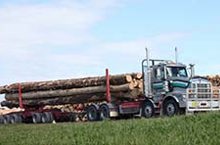
A carbon tax is the most effective way for New Zealand to cut emissions while supporting a stable economy, according to a recent University of Auckland study.
The study compares the effects of three environmental policies on New Zealand’s economy - carbon taxes, emissions trading schemes and emission intensity targets. It also explores environmental impacts on the economy by factoring in how pollution spreads across regions.
The researchers behind the project, Associate Professor Stephen Poletti, Dr Selena Sheng, Professor Emilson Silva, Dr Le Wen and lead author, doctoral candidate Simon Tao, say that while all policies caused some short-term welfare losses, a carbon tax was gentler on New Zealanders’ welfare and wallets overall.
Energy Centre Director, Professor Silva, says although carbon taxation may increase the cost of living, particularly by increasing food, transportation and energy prices, the revenue raised can be used to mitigate some of the subsequent burdens faced by households through income tax rebates or direct transfers to struggling families.
The researchers say a carbon tax could work well alongside the current emissions trading scheme (ETS) under which agriculture is exempt.
Professor Poletti says the study reinforces the view of many economists that the best way to reduce emissions is to impose a carbon tax: “It gives certainty to businesses as to the carbon price compared to the price set by an emissions trading scheme which is volatile.”
Unlike countries such as China, which introduced an environmental protection tax in 2016 alongside its ETS, the New Zealand government has chosen to refrain from levying a carbon tax, especially for emissions from the agricultural sector, which is exempt from the ETS, he says.
“Relying on the ETS for emissions reduction is ineffective in terms of meeting New Zealand’s environmental goals, and agricultural emissions pose a considerable challenge,” adds Mr Tao.
The study also highlights a tricky aspect of implementing environmental policies: in New Zealand, emissions tend to rise when the economy grows and fall during downturns, a pattern the researchers describe as pro-cyclical.
Mr Tao says the government could consider dynamic carbon pricing to help overcome the pro-cyclicality of environmental policies: “A flexible carbon price that increases during economic growth and decreases in recessions can help stabilise emissions. This would counteract emissions spikes in agriculture where production tends to rise during expansions, by setting higher carbon prices in growth periods.”
The study also discusses the importance of cross-regional cooperation, with environmental policies often affecting neighbouring countries.









